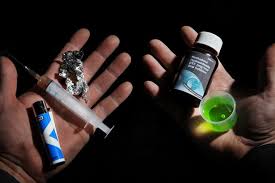
The Citizens’ Assembly seems like an admirable institution, and as a citizen of Ireland I would like to suggest that it might take a fresh look at the 2001 Mental Health Act. When the Mental Health Act was introduced, my mobile phone, computer and car would now be classed as antique; nobody had heard of social media; and drugs were not freely available in every town in Ireland.
When the Act was brought in, it was welcomed as a swing of the pendulum away from involuntary admission as a form of social control. I have worked in a few of the big psychiatric institutions and I knew many of the poor souls who had been banged-up in them in their youth for no good reason. In the new Republic of Ireland, from the 1920s to the 1970s, anyone who was a bit odd or deemed scandalous could easily be incarcerated for years with a minimum of paperwork and an absence of justice. However, nobody is likely to be admitted these days because they upset the parish priest, or they own a few acres of bogland in Leitrim the family want back.
They also cannot be admitted involuntarily because they drink or are addicted to drugs. Section 8 of the 2001 Act, and in particular subsection 2c, precludes involuntary admission for drug usage, alcohol or deviant and antisocial behaviour, and I am not sure that is a good thing in these troubled times.
Thirty years ago, if a man (and it was usually a man) had a serious drink problem, he would be eventually sent to Ballinasloe, or Clonmel, or wherever was handy, by his family, where he would be detoxified in the company of sympathetic psychiatric nurses. His family would visit, there would be an intervention, he could attend AA meetings and when he was ready, he would be discharged. It is true that many went straight back to the pub, but many did not and they went years without drinking or even stayed abstinent for life. It was by no means a perfect system, but it was miles better than what is available today. It was surmised that the poor devil was not thinking straight and had not been for years, and when he got out he was usually inclined to agree.
You don’t see many of the old pint-drinking, pub-regular alcoholics anymore. Young men are now addicted to drink (usually from the hypermarket), drugs and gambling in an unholy trio guaranteed to wreck young lives. They are at huge risk of suicide. They get involved in all sorts of criminality and their short, unhappy careers leave generations of misery in their wake.
I have sat in police stations and out-of-hours centres and listened to the frustration of community psychiatric nurses and gardaí as they see young men who are clearly a danger to themselves and others walk free because they have a smell of drink off them or have admitted to smoking cannabis. In fact, it would be a rare occasion if these youngsters were not a bit drunk or stoned, and they themselves know this is a way to stay out of the hospital. If the psychiatric services are the poor relation of the health service, the addiction services are the black sheep of that impoverished family. If you do manage to have someone involuntarily admitted, it is common to see them the next day, swaying outside the bookies’ shop. In view of the effects on their families, partners, friends and small children, the crimes committed and the devastation caused, you would think that some thought, effort and an increase in resources would be seen as a matter of extreme urgency.
The transport arrangements for patients who have been sectioned are cumbersome and impractical and are in urgent need of reform — everybody involved in general practice and psychiatry has known this for years.
If you take a stroll through the centre of Dublin you will see image after image of Myles, Behan and Kavanagh. They were all alcoholics, are now more celebrated for their lives than their work, and they are symbolic of the 1950s. The image of the great Phil Lynott, who was cursed by drug addiction as well as alcoholism, is everywhere too. It would be more fitting to see these fabulously talented men, who died before their time, as a warning and not as commodity to be hung on the wall of a tourist pub in Temple Bar.
Maybe the time has come for addiction medicine to become a speciality in its own right, like sports medicine, as the psychiatric services are obviously not coping. In any case, times have changed and the Mental Health Act 2001 is surely due for an upgrade.





Leave a Reply
You must be logged in to post a comment.